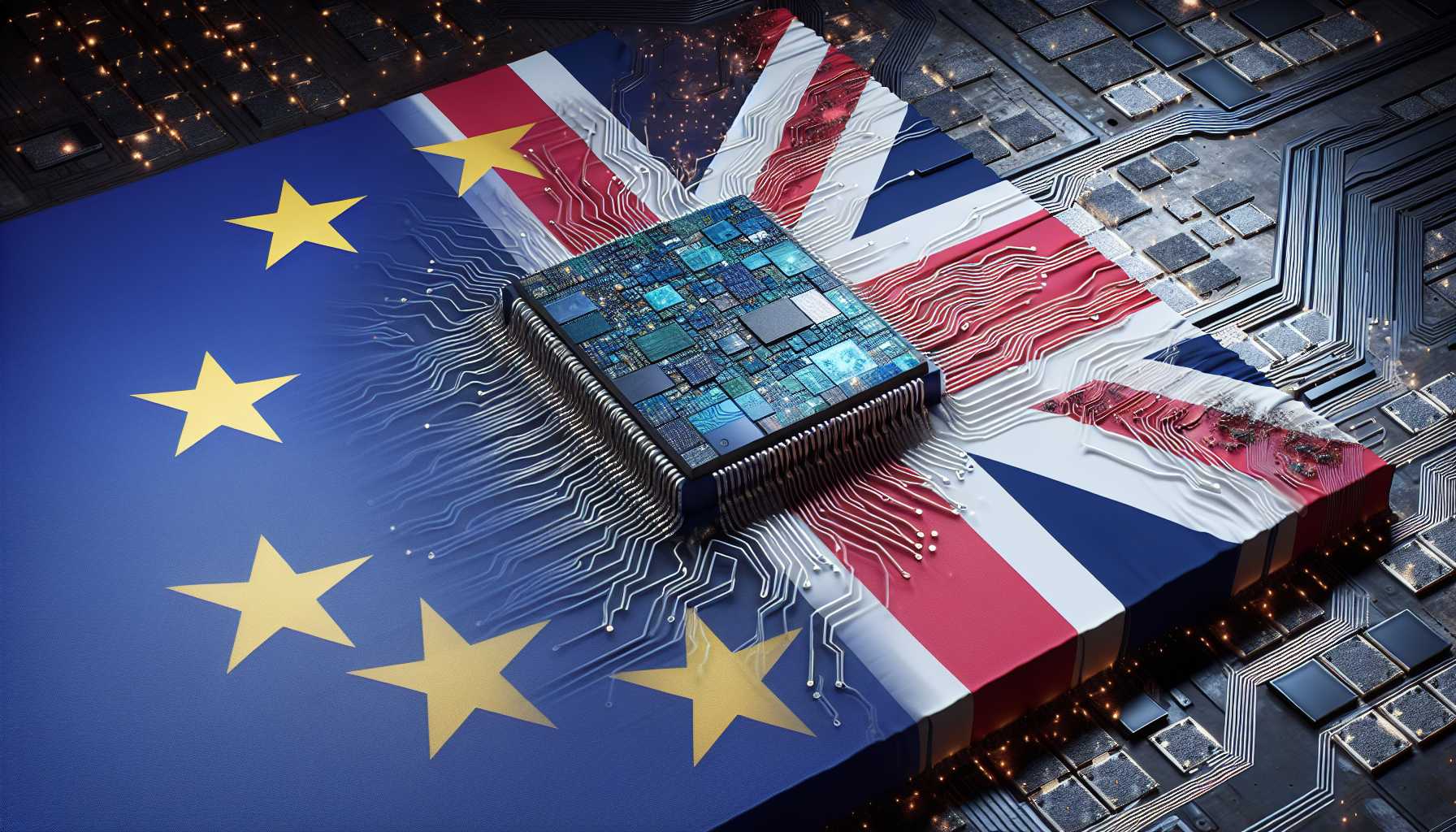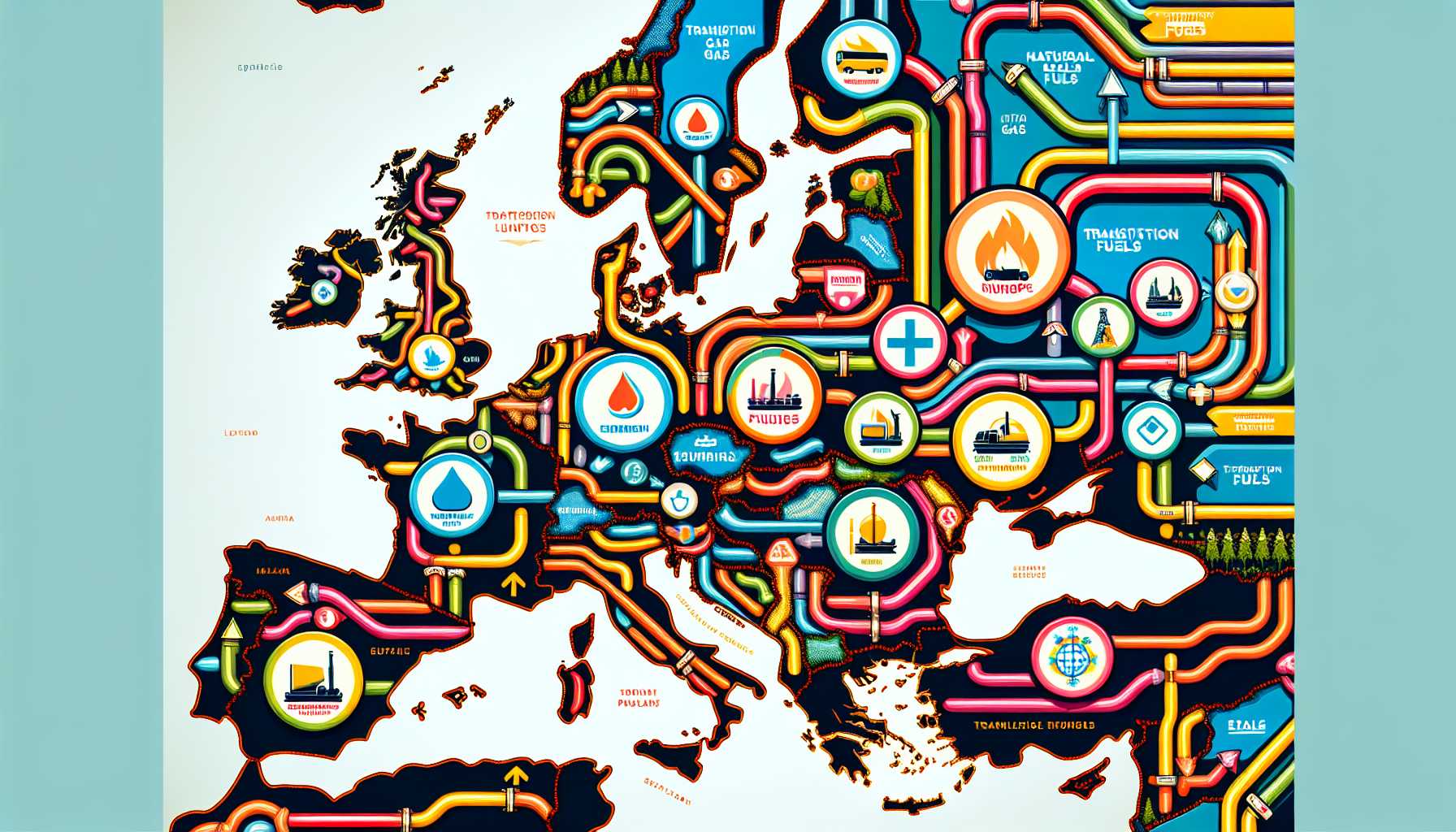The Great British Chip Chase: The UK’s Bold Semiconductor Quest
On the cyber stage, amidst the dance of powerful economies, something quite spectacular unfolds in the seemingly modest isles of the United Kingdom. No, it’s not another period drama or a twist to the saga of Brexit. The UK is powering up its technological prowess, declaring to the world: “We might have left one Union, but we sure know how to join another — for the sake of innovation!”
It’s clear the semiconductor race is heating up, and the UK refuses to be left in the digital dust. It’s no small feat that in wake of its EU farewell, the UK government waves hello to the EU’s Chips Joint Undertaking with a parting gift – a £35 million funding purse whispers of their commitment over the next few years. Sure, compared to the EU’s massive €1.3 billion pool, it may seem a modest beginning, but oh, it’s a strategic chess move in the kingdom’s grand technology tale.
There’s a reason why everyone, from your coffee shop barista to a Bay Street broker, is gabbing about semiconductors. They’re the tiny titans behind every gadget and gizmo, every app and automobile. With AI flexing its computational muscles and consumer electronics advancing at warp speed, there’s a universal scramble for the chips that will keep us running.
So, what’s the UK’s game plan here? By aligning with the Chips Joint Undertaking, UK organizations can dip their innovation-laden ladle into that big EU cash casserole.
Thousands of Tickets to the Silicon Ball!
Imagine this — tens of thousands of UK companies, from plucky startups to tech titans, could be eligible for grants. And we’re not talking peanuts; the average grant could furnish up to £450,000 of semiconductor-fueled dreams. The buzzer for this funding fiesta? May 14th, folks. Mark your calendars!
As technology aligns with equal parts competition and collaboration, the UK’s strategy stands out. In a post-Brexit world, the realization dawns: Going solo in tech development is like bringing a floppy disk to a solid-state drive fight. And let’s not forget the other tech handshakes happening across the pond – the UK is not just micro-chip mingling but data-sharing with Korea, shaking hands on science with Canada, and inking wide-ranged tech deals with the US. Each connection weaves a stronger net for a robust global tech ecosystem.
A Chip Off the Old Blockchain: UK’s Historic Semiconductor Play
Let’s take a quick detour down memory lane to where the UK’s semiconductor legacy began. Picture Cambridge, shrouded not only in collegiate prestige but also as the birthplace of Arm, the mastermind behind chip design blueprints used globally. Arm’s recent public market debut paints a promising tableau after a tangled waltz with Nvidia. But the canvas of Britain’s silicon aspirations is broad. Cast your gaze towards Bristol, where Graphcore once basked in unicorn glory for its AI chip ambitions, and now courts buyers. We spy intrigue in the sector, with players like Pragmatic Semiconductor securing a cozy £231 million boost with the government’s nod of support.
The Geology of Energy Dynamics
Leaving the micro realm, let’s drill into something a bit more… geologically grounded. Oilfields and natural gas – not exactly the showiest topics on Twitter feeds, but pivotally critical for Europe’s energy security narrative. Enter the California geologist, James Hill, setting the stage for a reversal of fortune with MCF Energy’s ambitious play — a nod to Europe’s past, cueing a potential future where gas is the bridge fuel transitioning us towards cleaner horizons. The stage is set in Germany and Austria, where old oilfields lay dormant, whispering of possibilities. MCF’s drill bits dance in ceremonies of rediscovery, eyeing sweet spots with historical prowess and modern magic — 3D seismic interpretation meeting AI, plotting a roadmap of gas and condensate riches. With pipes snaking closer and economics skewed in favour of domestic production, we’re witnessing a tangible fight for energy independence. Hill’s eyes gleam with visions of replicating historic successes in developmental coups and the lure of helium’s siren call.
Europe’s Bridge to Tomorrow: Natural Gas and Transition Fuels
Transition fuels like natural gas are the unsung heroes in the climate challenge we face. As European countries eye their own reserves with a newfound hunger, driven by Russian dependence woes, the market sees a seismic shift. Companies like Shell and BP, typically branded as oil mammoths, are casting their nets in the methane seas, striving for a balance dipped in shades of green. It’s a nuanced narrative, where gas and oil intermingle with renewable promises, gear-shifts in energy production hinting at a cleaner future. MCF Energy’s drill hammers might just echo across time, defining European energy independence and shaping a blueprint for how we power our lives amidst a world pouring sweat into the net-zero marathon.
As a tech enthusiast and investor, I find these developments clock-stoppingly exciting. They encapsulate the spirit of human ingenuity and resilience in overcoming challenges that once seemed insurmountable. Stay plugged in, for the technological and energy spheres are electric with progress, and who knows what voltaic surprises await us in the chapters to come.





